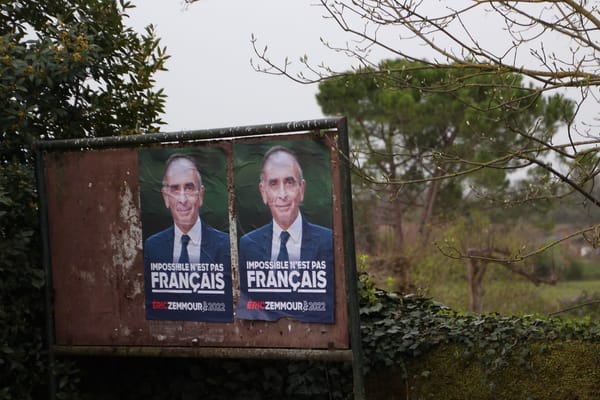A month ago, amid the heat of the French presidential campaign, the magazine L’Incorrect released the unedited video of a debate from 2019. It featured the darling of French conservatism, Marion Maréchal, and was about how to bring together the factions of the right. If united, the right could easily be the most powerful electoral force in France. Yet its forces are divided along both class and ideological lines, between the mostly bourgeois and centrist Les Républicains (LR) and the more working class and nationalist Rassemblement National (RN), led by Maréchal’s aunt, Marine Le Pen.
Maréchal argued that a nationalist agenda could transcend class divisions. The right would have to remain uncompromising on immigration and national identity but permit enough economic liberalism to satisfy the conservative bourgeoisie.
Maréchal’s opponent was skeptical. Because class divides run so deep, he argued, an effective French nationalist party should focus on the working classes who suffer most from mass immigration, not on the bourgeoisie who benefit from it. He doubted whether enough conservative, middle-class people were willing to choose patriotism over their pocketbooks. Maréchal dismissed this as a “very Marxian vision of society” and remained hopeful that the right could transcend class divides.
Her hope won’t be realized any time soon. As the results of the first round of the presidential election on Sunday showed, the French right is now split into three parties; unity appears more elusive than ever.
